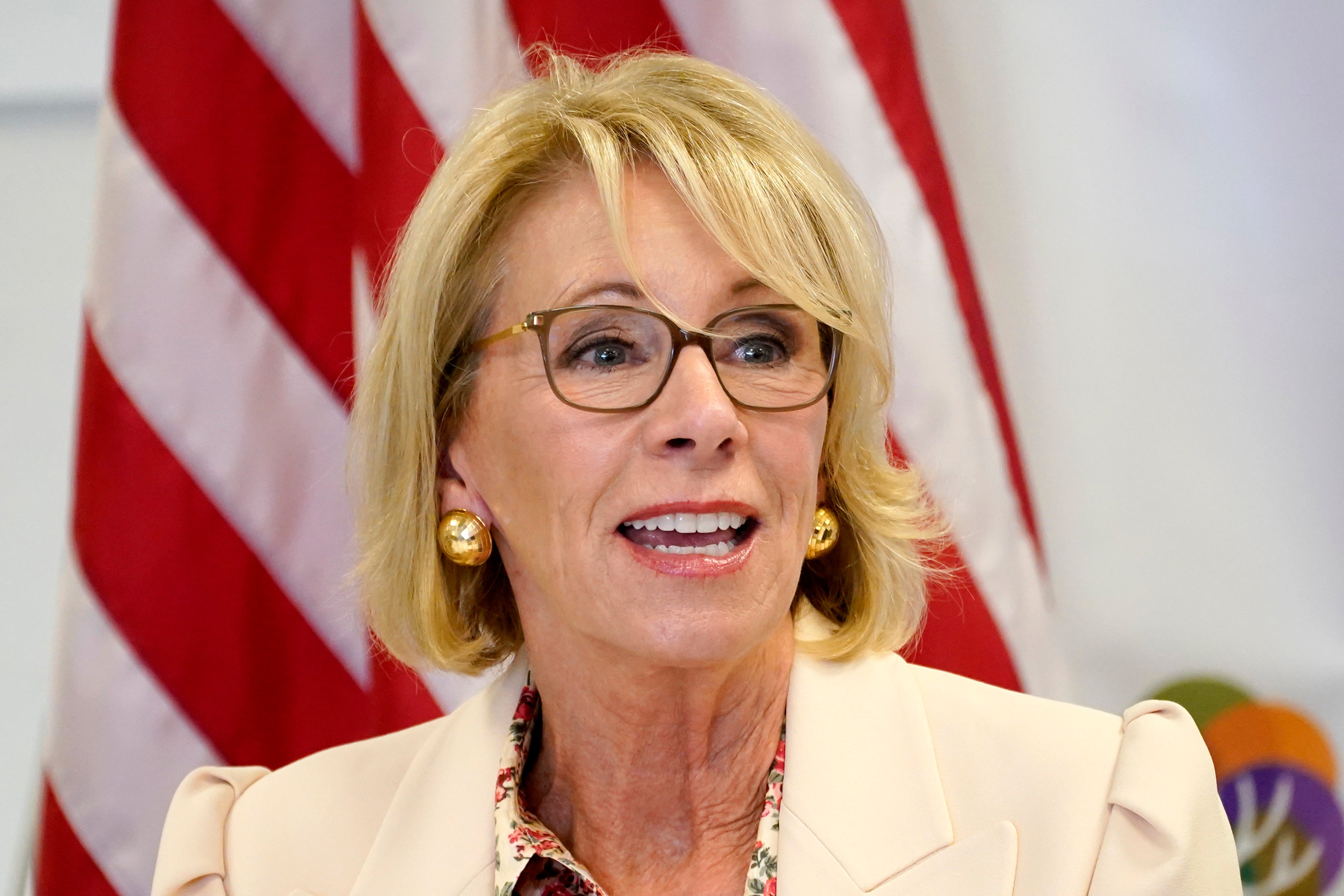Trump eases rules for religious social service providers
The Trump administration has moved to loosen Obama-era restrictions on religious organizations that receive federal money to provide social services

Your support helps us to tell the story
From reproductive rights to climate change to Big Tech, The Independent is on the ground when the story is developing. Whether it's investigating the financials of Elon Musk's pro-Trump PAC or producing our latest documentary, 'The A Word', which shines a light on the American women fighting for reproductive rights, we know how important it is to parse out the facts from the messaging.
At such a critical moment in US history, we need reporters on the ground. Your donation allows us to keep sending journalists to speak to both sides of the story.
The Independent is trusted by Americans across the entire political spectrum. And unlike many other quality news outlets, we choose not to lock Americans out of our reporting and analysis with paywalls. We believe quality journalism should be available to everyone, paid for by those who can afford it.
Your support makes all the difference.The Trump administration on Monday moved to loosen Obama-era restrictions on religious organizations that receive federal money to provide social services.
In new rules coordinated across nine federal agencies, the administration said it was clearing barriers that make it difficult for religious groups to participate in federal programs.
Chief among the changes is the elimination of a rule requiring faith-based groups to tell clients about their religious character and to refer clients to a different program upon request.
It also removes a rule telling religious groups to give clients written notice about their rights, including that they can’t be forced to participate in religious activities
Veterans Affairs Secretary Robert Wilkie said the changes will “remove unfair obstacles” standing before groups that seek to contract with the agency to help veterans.
“VA partners with hundreds of groups across the country that are looking to support our Veterans,” Wilkie said. “Making it harder for faith-based groups to deliver this support never made sense.”
Education Secretary Betsy DeVos said the policy ensures that faith-based groups “do not give up their First Amendment rights as a condition of participating in taxpayer programs."
The new policy applies to funding from nine agencies including the Department of Veterans Affairs, the Education Department and the Department of Health and Human Services. Together, the agencies award billions of dollars a year in grants and contracts.
Proposed last January, the policy follows through on an executive order President Donald Trump signed in 2018 aiming to put religious groups on equal footing when they compete for federal grants and contracts.
The executive order was one of several overtures Trump made to his evangelical Christian base around the presidential campaign. Trump also vowed to protect prayer in public schools and bolster the rights of religious groups on college campuses.
Civil rights group blasted the new changes, saying the previous rules were meant to protect LGBTQ people, religious minorities and others who may face discrimination from religious groups. If they don't know they have the option to get help elsewhere, advocates say, they might choose to forgo services they need, including medical care or housing assistance.
Advocates raised concerns about substance abuse programs that include religious counseling, for example, and faith-based homeless shelters that refuse to house transgender women with other women.
“Some faith-based agencies provide services in a way that is discriminatory," said Jennifer Pizer, law and policy director for Lambda Legal, an LGBTQ rights group. “They think being an LGBTQ person is not legitimate, so they include religious proselyting or provide services in a way that doesn't respect peoples identity. And that drives people away.”
Pizer sees the policy as a last-ditch effort to remove civil protections before Trump leaves office. The policy will take effect Jan. 16, days before President-elect Joe Biden's inauguration.
“They are doing their best to lift as many nondiscrimination rules as they can before the new administration comes in," she said.
American Atheists, a civil rights group, said the previous rules were created with support from religious and civil rights groups alike. The group vowed to work with the Biden administration “to fix these discriminatory changes that undermine Americans’ religious liberties."
Rep. Bobby Scott, D-Va., chairman of the House education and labor committee, condemned the policy. He said it could wrongly lead people to think they have to participate in religious activities in order to receive benefits of federally funded programs.
“Civil rights laws should protect those who are discriminated against — not those who are engaged in invidious discrimination," Scott said in a statement. "Today’s announcement is a reflection of this administration’s misplaced priorities and distorted view of religious liberty.”
The new rules are being finalized after a public feedback period that drew nearly 100,000 comments. Religious groups applauded the changes, while civil rights groups said they opened the door for discrimination.
In defending its policy, the administration said some of the revoked rules had rarely been used. The nine agencies said they were not aware of any client of a faith-based group that requested a referral to another program. And some faith-based groups have committed to making referrals even if it isn't required, the agencies wrote.